1782 Born: Martin Van Buren, American lawyer and politician, 8th President of the United States (d. 1862)
Some US stamps depicting Martin Van Buren
1791 Died: Wolfgang Amadeus Mozart, Austrian composer and musician (b. 1756)
Born in Salzburg, Mozart showed prodigious ability from his earliest childhood. Already competent on keyboard and violin, he composed from the age of five and performed before European royalty. At 17, Mozart was engaged as a musician at the Salzburg court but grew restless and traveled in search of a better position. While visiting Vienna in 1781, he was dismissed from his Salzburg position. He chose to stay in the capital, where he achieved fame but little financial security. During his final years in Vienna, he composed many of his best-known symphonies, concertos, and operas, and portions of the Requiem, which was largely unfinished at the time of his early death at the age of 35. The circumstances of his death have been much mythologized.
He composed more than 600 works, many of which are acknowledged as pinnacles of symphonic, concertante, chamber, operatic, and choral music. He is among the most enduringly popular of classical composers, and his influence is profound on subsequent Western art music. Ludwig van Beethoven composed his early works in the shadow of Mozart, and Joseph Haydn wrote: "posterity will not see such a talent again in 100 years".
Some stamps from various countries commemorating Mozart
1870 Died: Alexandre Dumas, French novelist and playwright (b. 1802)
Some stamps from France, Monaco, Romania and Liechtenstein depicting Alexandre Dumas
Dom Pedro II (English: Peter II; 2 December 1825 – 5 December 1891), nicknamed "the Magnanimous", was the second and last monarch of the Empire of Brazil, reigning for over 58 years. He was born in Rio de Janeiro, the seventh child of Emperor Dom Pedro I of Brazil and Empress Dona Maria Leopoldina and thus a member of the Brazilian branch of the House of Braganza. His father's abrupt abdication and departure to Europe in 1831 left the five year-old as Emperor and led to a grim and lonely childhood and adolescence, obliged to spend his time studying in preparation for rule. He knew only brief moments of happiness and encountered few friends of his age. His experiences with court intrigues and political disputes during this period greatly affected his later character; he grew into a man with a strong sense of duty and devotion toward his country and his people, yet increasingly resentful of his role as monarch.
Pedro II inherited an empire on the verge of disintegration, but he turned Brazil into an emerging power in the international arena. The nation grew to be distinguished from its Hispanic neighbors on account of its political stability, zealously guarded freedom of speech, respect for civil rights, vibrant economic growth, and form of government—a functional representative parliamentary monarchy. Brazil was also victorious in the Platine War, the Uruguayan War, and the Paraguayan War, as well as prevailing in several other international disputes and domestic tensions. Pedro II steadfastly pushed through the abolition of slavery despite opposition from powerful political and economic interests. A savant in his own right, the Emperor established a reputation as a vigorous sponsor of learning, culture, and the sciences, and he won the respect and admiration of people such as Charles Darwin, Victor Hugo, and Friedrich Nietzsche, and was a friend to Richard Wagner, Louis Pasteur, and Henry Wadsworth Longfellow, among others.
There was no desire for a change in the form of government among most Brazilians, but the Emperor was overthrown in a sudden coup d'état that had almost no support outside a clique of military leaders who desired a form of republic headed by a dictator. Pedro II had become weary of emperorship and despaired over the monarchy's future prospects, despite its overwhelming popular support. He did not allow his ouster to be opposed and did not support any attempt to restore the monarchy. He spent the last two years of his life in exile in Europe, living alone on very little money.
The reign of Pedro II thus came to an unusual end—he was overthrown while highly regarded by the people and at the pinnacle of his popularity, and some of his accomplishments were soon brought to naught as Brazil slipped into a long period of weak governments, dictatorships, and constitutional and economic crises. The men who had exiled him soon began to see in him a model for the Brazilian republic. A few decades after his death, his reputation was restored and his remains were returned to Brazil with celebrations nationwide. Historians have regarded the Emperor in an extremely positive light and several have ranked him as the greatest Brazilian.
1926 Died: Claude Monet, French painter (b. 1840)
Oscar-Claude Monet (14 November 1840 – 5 December 1926) was a French painter, a founder of French Impressionist painting and the most consistent and prolific practitioner of the movement's philosophy of expressing one's perceptions before nature, especially as applied to plein air landscape painting. The term "Impressionism" is derived from the title of his painting Impression, soleil levant (Impression, Sunrise), which was exhibited in 1874 in the first of the independent exhibitions mounted by Monet and his associates as an alternative to the Salon de Paris.
Monet's ambition of documenting the French countryside led him to adopt a method of painting the same scene many times in order to capture the changing of light and the passing of the seasons. From 1883, Monet lived in Giverny, where he purchased a house and property and began a vast landscaping project which included lily ponds that would become the subjects of his best-known works. In 1899, he began painting the water lilies, first in vertical views with a Japanese bridge as a central feature and later in the series of large-scale paintings that was to occupy him continuously for the next 20 years of his life.
Stamps from Monaco and France depicting Monet's works
Michael I (25 October 1921 – 5 December 2017) was the last King of Romania, reigning from 20 July 1927 to 8 June 1930 and again from 6 September 1940 until his forced abdication on 30 December 1947.
Shortly after Michael's birth, his father, Crown Prince Carol of Romania, had become involved in a controversial relationship with Magda Lupescu. In 1925, Carol was pressured to renounce his rights to the throne and moved to Paris in exile with Lupescu. In 1927, Michael ascended the throne, following the death of his grandfather King Ferdinand I. As Michael was still a minor, a regency council was instituted, composed of his uncle Prince Nicholas, Patriarch Miron Cristea, and the president of the Supreme Court, Gheorghe Buzdugan. The council proved to be ineffective and, in 1930, Carol returned to Romania and replaced his son as monarch, reigning as Carol II. As a result, Michael returned to being heir apparent to the throne and was given the additional title of Grand Voievod of Alba-Iulia.
Carol II was deposed in 1940, and Michael once again became king. Under the government led by the military dictator Ion Antonescu, Romania became aligned with Nazi Germany. In 1944, Michael participated in a coup against Antonescu, appointed Constantin Sănătescu as his replacement, and subsequently declared an alliance with the Allies. In March 1945, political pressures forced Michael to appoint a pro-Soviet government headed by Petru Groza. From August 1945 to January 1946, Michael went on a "royal strike" and unsuccessfully tried to oppose Groza's Communist-controlled government by refusing to sign and endorse its decrees. In November 1947, Michael attended the wedding of his cousins, the future Queen Elizabeth II of the United Kingdom and Prince Philip of Greece and Denmark in London. Shortly thereafter, on the morning of 30 December 1947, Groza met with Michael and compelled him to abdicate. Michael was forced into exile, his properties confiscated, and his citizenship stripped. In 1948, he married Princess Anne of Bourbon-Parma (thenceforth known as Queen Anne of Romania), with whom he had five daughters, and the couple eventually settled in Switzerland.
Nicolae Ceaușescu's communist dictatorship was overthrown in 1989 and the following year Michael attempted to return to Romania, only to be arrested and forced to leave upon arrival. In 1992, Michael was allowed to visit Romania for Easter, where he was greeted by huge crowds; a speech he gave from his hotel window drew an estimated one million people to Bucharest. Alarmed by Michael's popularity, the post-communist government of Ion Iliescu refused to allow him any further visits. In 1997, after Iliescu's defeat by Emil Constantinescu in the presidential elections of the previous year, Michael's citizenship was restored and he was allowed to visit Romania again. Several confiscated properties, such as Peleş Castle and Săvârşin Castle, were eventually returned to his family.
Romanian stamps depicting King Michael I

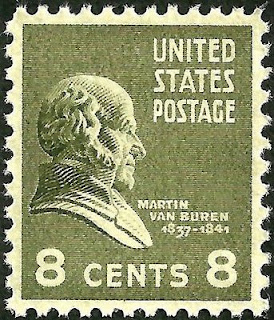
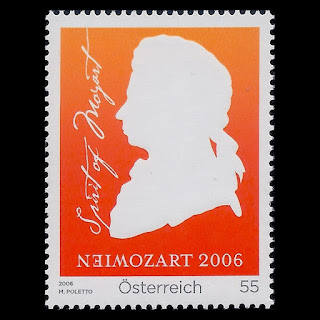

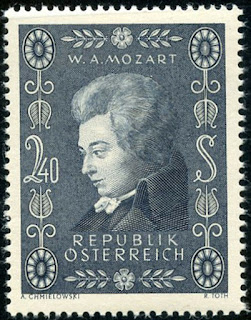



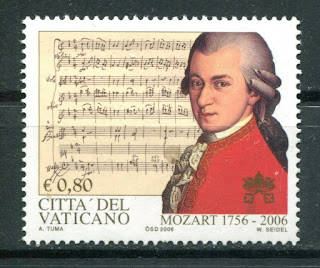

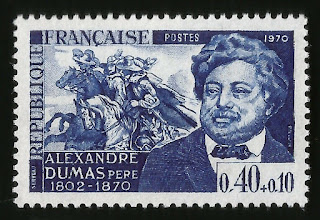



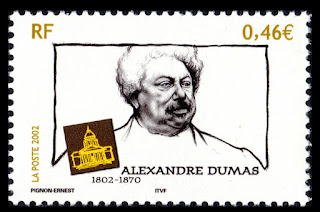





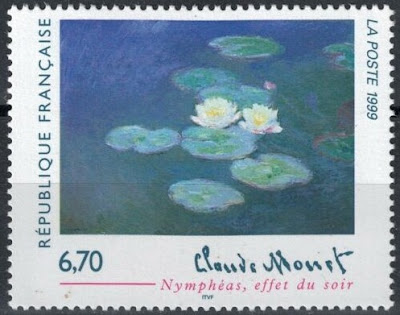

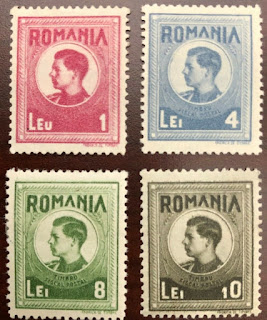
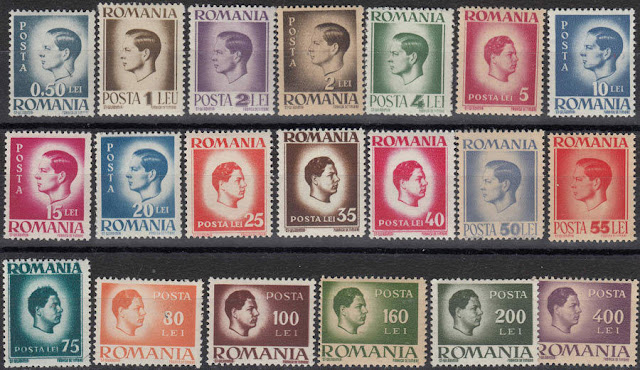
No comments:
Post a Comment